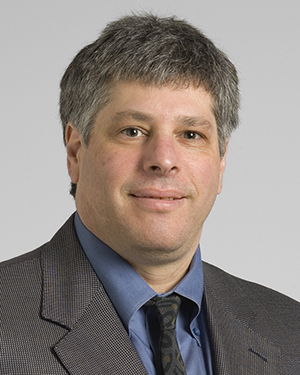Mitchell Olman Laboratory
-
Mitchell Olman Laboratory
- Principal Investigator
- Research
- Our Team
- Publications
- Careers
- Research News
Research
We study the disease idiopathic pulmonary fibrosis. Our work tries to understand the process of scarring in the lung with the goal of identifying new targets with which to treat this disease. We focus on fibroblasts, the cells that form the scar in the lung. We study how these fibroblasts become activated and thereby act as potent scar formers.
Biography
Education & Professional Highlights
Education & Fellowships
Medical Education - Scripps Research Institute
Vascular Biology Research
La Jolla, CA USA
1993
Fellowship - University of California San Diego Medical Center
Pulmonary & Critical Care Medicine
San Diego, CA USA
1990
Residency - University of Chicago Hospitals
Internal Medicine
Chicago, IL USA
1986
Medical Education - New York University School of Medicine
New York, NY USA
1983
Graduate School - Columbia University
Anatomy
New York, NY USA
1980
Undergraduate - State University of New York
Chemistry
New York, NY USA
1978
Certifications
- Internal Medicine
- Internal Medicine - Pulmonary Disease
Research
Our research is focused on the pathogenesis on the fatal and untreatable disorder of idiopathic pulmonary fibrosis. The general approach we adopt is to investigate pulmonary fibrosis at the molecular level, in cells and animal models, and to validate the newly-discovered pathways using patient samples. We focus on the fundamental biology of scar formation by fibroblasts and fibroblast-like cells.
Our recent work has focused on the processes of fibroblast migration and transdifferentiation. We have shown that a naturally occurring inhibitor of integrin-dependent signaling, focal adhesion kinase non-kinase (FRNK), can block TGF-beta –induced myofibroblast differentiation, and the development of pulmonary fibrosis in vivo. In ongoing work, we have also shown that the cell surface receptor for the fibrinolytic protease, urokinase, interacts with integrins in primary human lung fibroblasts thereby enhancing the integrin-dependent functions of fibroblast attachment and migration. Lastly, we have identified an ion channel that may control the process of myofibroblast differentiation.
At the bedside, we are privileged to co-author a NIH-sponsored, multicenter clinical trial of anticoagulants in idiopathic pulmonary fibrosis. This approach will hopefully lead to improved outcomes.
Our Team
Selected Publications
View publications for Mitchell Olman, MA, MD
(Disclaimer: This search is powered by PubMed, a service of the U.S. National Library of Medicine. PubMed is a third-party website with no affiliation with Cleveland Clinic.)
K White, Q Ding, B Moore, M Peters-Golden, L Ware, M Matthay and M.A. Olman.PGE2 mediates IL-1β-related fibroblast mitogenic effects in acute lung injury through differential utilization of prostanoid receptors. J Immunol 180 (1): 637-646; 2008 Q Ding, C Gladson, H Wu, H Haysaka and MA Olman. FAK-related non-kinase inhibits myofibroblast differentiation through differential MAPK activation in a FAK-dependent manner. J Biol Chem 2008; 283:26839-49 S Zhu, C Gladson, K White, Q Ding,J Stewart, Jr., T Jin, H Chapman, Jr, and M A. Olman. Urokinase receptor mediates lung fibroblast attachment andmigration towards provisional matrix proteins through interactions with multiple integrins. Am J of Physiol:LCMP 2009; 297:L97-L108
Careers
Training at Lerner Research Institute
Our education and training programs offer hands-on experience at one of the nationʼs top hospitals. Travel, publish in high impact journals and collaborate with investigators to solve real-world biomedical research questions.
Learn MoreResearch News

Findings suggest that blocking TRPV4 and PI3Kγ binding may be an unexplored avenue for treating or preventing fibrotic conditions of many major organs.
